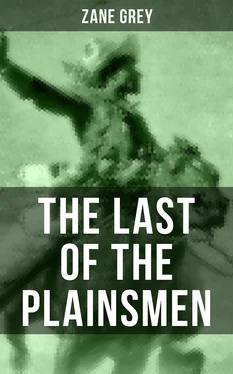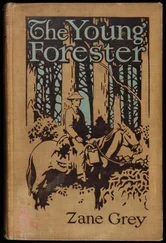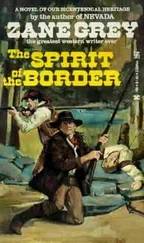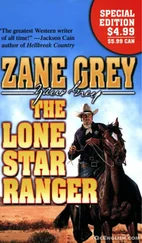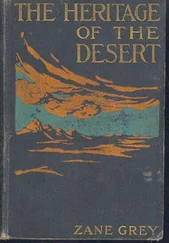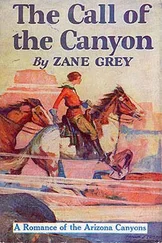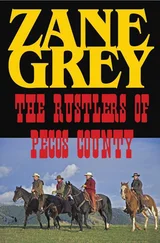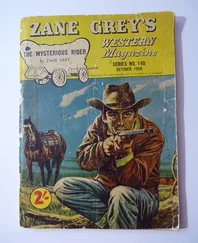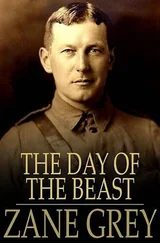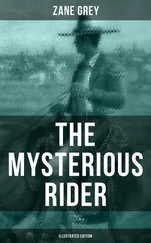All day long we ran the gauntlet of the hot, flying sand. Night came again, a cold, windy night. I slept well until a mule stepped on my bed, which was conducive to restlessness. At dawn, cold, gray clouds tried to blot out the rosy east. I could hardly get up. My lips were cracked; my tongue swollen to twice its natural size; my eyes smarted and burned. The barrels and kegs of water were exhausted. Holes that had been dug in the dry sand of a dry streambed the night before in the morning yielded a scant supply of muddy alkali water, which went to the horses.
Only twice that day did I rouse to anything resembling enthusiasm. We came to a stretch of country showing the wonderful diversity of the desert land. A long range of beautifully rounded clay stones bordered the trail. So symmetrical were they that I imagined them works of sculptors. Light blue, dark blue, clay blue, marine blue, cobalt blue—every shade of blue was there, but no other color. The other time that I awoke to sensations from without was when we came to the top of a ridge. We had been passing through red-lands. Jones called the place a strong, specific word which really was illustrative of the heat amid those scaling red ridges. We came out where the red changed abruptly to gray. I seemed always to see things first, and I cried out: "Look! here are a red lake and trees!"
"No, lad, not a lake," said old Jim, smiling at me; "that's what haunts the desert traveler. It's only mirage!"
So I awoke to the realization of that illusive thing, the mirage, a beautiful lie, false as stairs of sand. Far northward a clear rippling lake sparkled in the sunshine. Tall, stately trees, with waving green foliage, bordered the water. For a long moment it lay there, smiling in the sun, a thing almost tangible; and then it faded. I felt a sense of actual loss. So real had been the illusion that I could not believe I was not soon to drink and wade and dabble in the cool waters. Disappointment was keen. This is what maddens the prospector or sheep-herder lost in the desert. Was it not a terrible thing to be dying of thirst, to see sparkling water, almost to smell it and then realize suddenly that all was only a lying track of the desert, a lure, a delusion? I ceased to wonder at the Mormons, and their search for water, their talk of water. But I had not realized its true significance. I had not known what water was. I had never appreciated it. So it was my destiny to learn that water is the greatest thing on earth. I hung over a three-foot hole in a dry stream-bed, and watched it ooze and seep through the sand, and fill up—oh, so slowly; and I felt it loosen my parched tongue, and steal through all my dry body with strength and life. Water is said to constitute three fourths of the universe. However that may be, on the desert it is the whole world, and all of life.
Two days passed by, all hot sand and wind and glare. The Mormons sang no more at evening; Jones was silent; the dogs were limp as rags.
At Moncaupie Wash we ran into a sandstorm. The horses turned their backs to it, and bowed their heads patiently. The Mormons covered themselves. I wrapped a blanket round my head and hid behind a sage bush. The wind, carrying the sand, made a strange hollow roar. All was enveloped in a weird yellow opacity. The sand seeped through the sage bush and swept by with a soft, rustling sound, not unlike the wind in the rye. From time to time I raised a corner of my blanket and peeped out. Where my feet had stretched was an enormous mound of sand. I felt the blanket, weighted down, slowly settle over me.
Suddenly as it had come, the sandstorm passed. It left a changed world for us. The trail was covered; the wheels hub-deep in sand; the horses, walking sand dunes. I could not close my teeth without grating harshly on sand.
We journeyed onward, and passed long lines of petrified trees, some a hundred feet in length, lying as they had fallen, thousands of years before. White ants crawled among the ruins. Slowly climbing the sandy trail, we circled a great red bluff with jagged peaks, that had seemed an interminable obstacle. A scant growth of cedar and sage again made its appearance. Here we halted to pass another night. Under a cedar I heard the plaintive, piteous bleat of an animal. I searched, and presently found a little black and white lamb, scarcely able to stand. It came readily to me, and I carried it to the wagon.
"That's a Navajo lamb," said Emmett. "It's lost. There are Navajo Indians close by."
"Away in the desert we heard its cry," quoted one of the Mormons.
Jones and I climbed the red mesa near camp to see the sunset. All the western world was ablaze in golden glory. Shafts of light shot toward the zenith, and bands of paler gold, tinging to rose, circled away from the fiery, sinking globe. Suddenly the sun sank, the gold changed to gray, then to purple, and shadows formed in the deep gorge at our feet. So sudden was the transformation that soon it was night, the solemn, impressive night of the desert. A stillness that seemed too sacred to break clasped the place; it was infinite; it held the bygone ages, and eternity.
More days, and miles, miles, miles! The last day's ride to the Big Colorado was unforgettable. We rode toward the head of a gigantic red cliff pocket, a veritable inferno, immeasurably hot, glaring, awful. It towered higher and higher above us. When we reached a point of this red barrier, we heard the dull rumbling roar of water, and we came out, at length, on a winding trail cut in the face of a blue overhanging the Colorado River. The first sight of most famous and much-heralded wonders of nature is often disappointing; but never can this be said of the blood-hued Rio Colorado. If it had beauty, it was beauty that appalled. So riveted was my gaze that I could hardly turn it across the river, where Emmett proudly pointed out his lonely home—an oasis set down amidst beetling red cliffs. How grateful to the eye was the green of alfalfa and cottonwood! Going round the bluff trail, the wheels had only a foot of room to spare; and the sheer descent into the red, turbid, congested river was terrifying.
I saw the constricted rapids, where the Colorado took its plunge into the box-like head of the Grand Canyon of Arizona; and the deep, reverberating boom of the river, at flood height, was a fearful thing to hear. I could not repress a shudder at the thought of crossing above that rapid.
The bronze walls widened as we proceeded, and we got down presently to a level, where a long wire cable stretched across the river. Under the cable ran a rope. On the other side was an old scow moored to the bank.
"Are we going across in that?" I asked Emmett, pointing to the boat.
"We'll all be on the other side before dark," he replied cheerily.
I felt that I would rather start back alone over the desert than trust myself in such a craft, on such a river. And it was all because I had had experience with bad rivers, and thought I was a judge of dangerous currents. The Colorado slid with a menacing roar out of a giant split in the red wall, and whirled, eddied, bulged on toward its confinement in the iron-ribbed canyon below.
In answer to shots fired, Emmett's man appeared on the other side, and rode down to the ferry landing. Here he got into a skiff, and rowed laboriously upstream for a long distance before he started across, and then swung into the current. He swept down rapidly, and twice the skiff whirled, and completely turned round; but he reached our bank safely. Taking two men aboard he rowed upstream again, close to the shore, and returned to the opposite side in much the same manner in which he had come over.
The three men pushed out the scow, and grasping the rope overhead, began to pull. The big craft ran easily. When the current struck it, the wire cable sagged, the water boiled and surged under it, raising one end, and then the other. Nevertheless, five minutes were all that were required to pull the boat over.
Читать дальше
